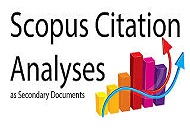Studi Kasus Regulasi Diri Afeksi Moral Pada Siswa Yang Menyontek
DOI:
https://doi.org/10.33394/jk.v4i1.904Keywords:
Regulasi Diri, Afeksi Moral, Perilaku Menyontek.Abstract
Penelitian ini dimaksudkan untuk memahami perilaku menyontek siswa dari perspektif self-regulation moral. Total 3 laki-laki dan 1 perempuan dilibatkan sebagai responden dalam studi kasus ini. Hasil penelitian menunjukkan ada enam bentuk pemikiran atau alasan yang mendasari perilaku menyontek. Selain itu, hasil penelitian juga menunjukkan beberapa upaya yang dapat dilakukan untuk mengurangi perilaku menyontek.
References
Adler, P.A., & Adler, P. (1994). Observational Technique. Dalam N.K. Denzin & Y.S. Lincoln (ed.). Handbook of Qualitative Research. Thousand Oaks: SAGE Publications.
Atkinson, P., & Hammersley, M. (1994). Etnography and Participant Observation. Dalam N.K. Denzin & Y.S. Lincoln (ed.). Handbook of Qualitative Research. Thousand Oaks: SAGE Publications.
Azwar, S. (2000). Tes Prestasi: Fungsi dan Pengembangan Pengukuran Prestasi Belajar. Yogyakarta: Pustaka Pelajar Offset.
Bandura, A. (2002). Selective Moral Disengagement in the Exercise of Moral Agency. Journal of Moral Education. 31(2), 101-119.
Bandura, A. (1999). A. Social Cognitive Theory of Personality. Dalam L. Pervin & O. John (Ed.), Handbook of Personality.New York: Guilford Publication.
Burden, P.R., & Byrd, D.M. (1999). Methods for Effective Teaching. Boston: Allyn and Bacon.
Farnese, M. L., Tramontano, C., Fida, R., Paciello, M. (2011). Cheating Behaviors in Academic Context: Does Academic Moral Disengagement Matter?. Procedia-Social and Behavioral Siences., Vol. 29., P.356-365
Fontana, A., & Frey, J.H. (1994). Interviewing: The Art of Science. Dalam N.K. Denzin & Y.S. Lincoln (ed.). Handbook of Qualitative Research. Thousand Oaks: SAGE Publications.
Hasnatul, A. (2011). Pengaruh Self Efficacy, Konformitas dan Goal Orientation Terhadap Perilaku Menyontek (Cheating) Siswa MTs Al-Hidayah Bekasi. Jurnal UIN Syarif Hidayatullah., Vol.2., No.1., P.86-92
Hergenhahn, B.R., & Olson, M.H. (1997). An Introduction to Theories of Learning. London: Prentice Hall International Inc.
Indarto, J. (2003). Hubungan antara Orientasi Tujuan Penguasaan dan Orientasi Tujuan Performansi dengan Intensi Menyontek. Tesis tidak diterbitkan. Yogykarta: Fakultas Psikologi UGM.
Koentjara. (2002). Metodologi Penelitian Kualitatif. Diktat Perpelajaranan S2. Yogyakarta: Fakultas Psikologi UGM.
Moleong, L.J. (2005). Metodologi Penelitian Kualitatif. Edisi Revisi. Bandung: PT Remaja Rosdakarya.
Murdock, T.B., Miller, A., & Kohlhardt, J. (2004). Effects of Classroom Context Variables on High School Students’ Judgements of the Acceptability and Likelihood of Cheating. Journal of Educational Psychology, 96 (4), 765-777.
Smith, J.A. (2006). Qualitative Psychology: Practical Guide to Research Methods. Diterjemahkan M. Khozim. Bandung: Penerbit Nusa Media.
Smyth, M.L., & Davis, J.R. (2003). An Examination of Student Cheating in the Two-Year College. Community College Review. (diakses melalui http://www.findarticles.com pada tanggal 24 April 2004)
Stake, R.E. (2000). Studi Kasus. Dalam N.K. Denzin & Y.S. Lincoln (ed.). Handbook of Qualitative Research. Diterjemahkan Dariyatno, dkk. Yogyakarta: Penerbit Pustaka Pelajar.
Staneculescu, E., (2013). Affective Tendencies in Embrrasing Situastion and Academic Cheating Behavior., Procedia-Social and Behavioral Siences.,Vol. 78., P.723-727
Sujana, Y.E. (1993). Hubungan antara Kecenderungan Pusat Kendali dengan Intensi Menyontek. Skripsi tidak diterbitkan. Yorgyakarta: fakultas Psikologi UGM.
Sunawan & Mulawarman, (2007). Perilaku Menyontek Siswa Ditinjau dari Sikap tentang Menyontek dan Orientasi Tujuan. Laporan Penelitian tidak Dipublikasikan. Semarang: Universitas Negeri Semarang.
Downloads
Published
How to Cite
Issue
Section
Citation Check
License
License and Publishing AgreementIn submitting the manuscript to the journal, the authors certify that:
- They are authorized by their co-authors to enter into these arrangements.
- The work described has not been formally published before, except in the form of an abstract or as part of a published lecture, review, thesis, or overlay journal.
- That it is not under consideration for publication elsewhere,
- That its publication has been approved by all the author(s) and by the responsible authorities – tacitly or explicitly – of the institutes where the work has been carried out.
- They secure the right to reproduce any material that has already been published or copyrighted elsewhere.
- They agree to the following license and publishing agreement.
Authors who publish with JK agree to the following terms:
- Authors retain copyright and grant the journal right of first publication with the work simultaneously licensed under a Creative Commons Attribution License (CC BY-SA 4.0) that allows others to share the work with an acknowledgment of the work's authorship and initial publication in this journal.Â
- Authors are able to enter into separate, additional contractual arrangements for the non-exclusive distribution of the journal's published version of the work (e.g., post it to an institutional repository or publish it in a book), with an acknowledgment of its initial publication in this journal.
- Authors are permitted and encouraged to post their work online (e.g., in institutional repositories or on their website) prior to and during the submission process, as it can lead to productive exchanges, as well as earlier and greater citation of published work.
- Open Data Commons Attribution License, http://www.opendatacommons.org/licenses/by/1.0/ (default)

This work is licensed under a Creative Commons Attribution-ShareAlike 4.0 International License.








